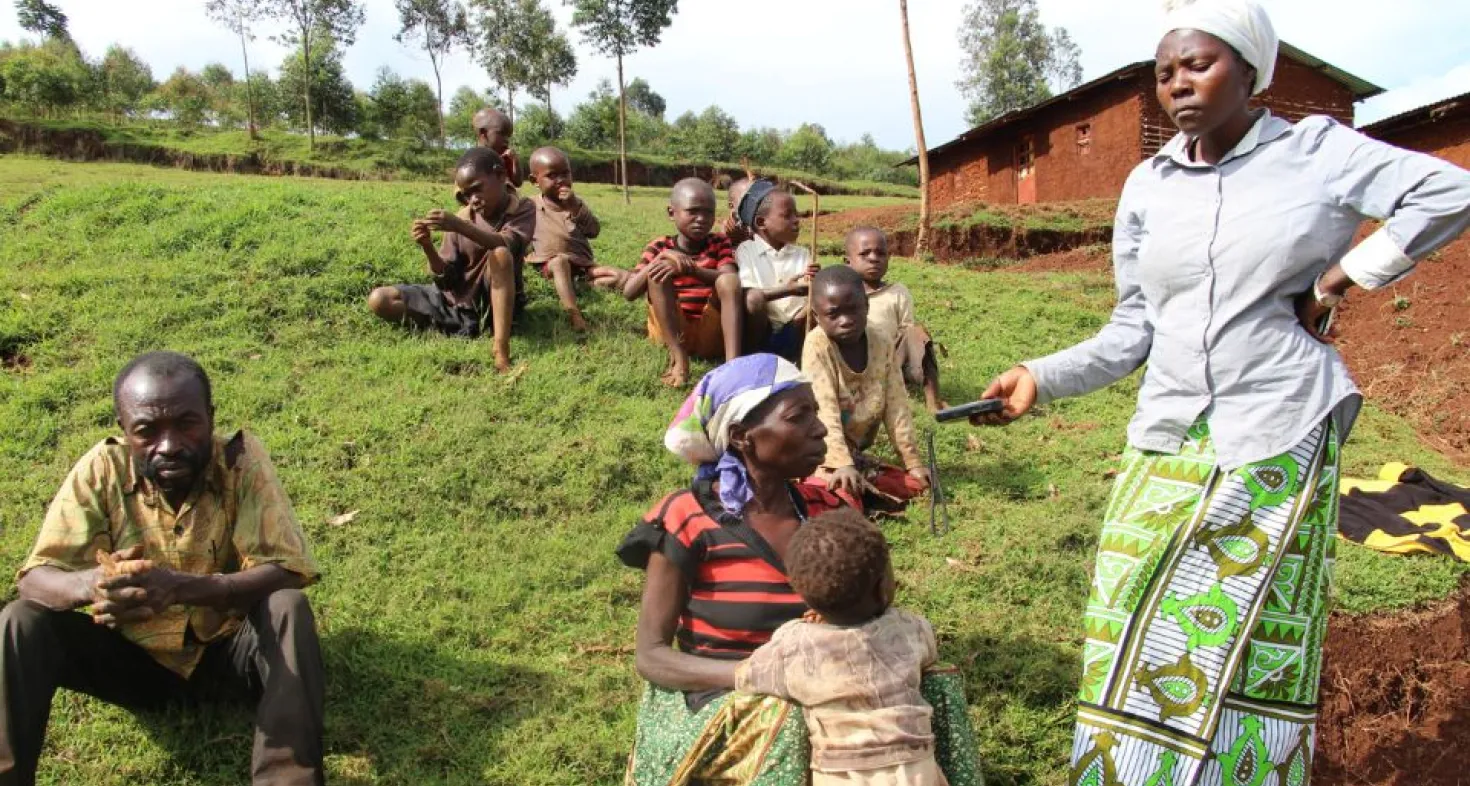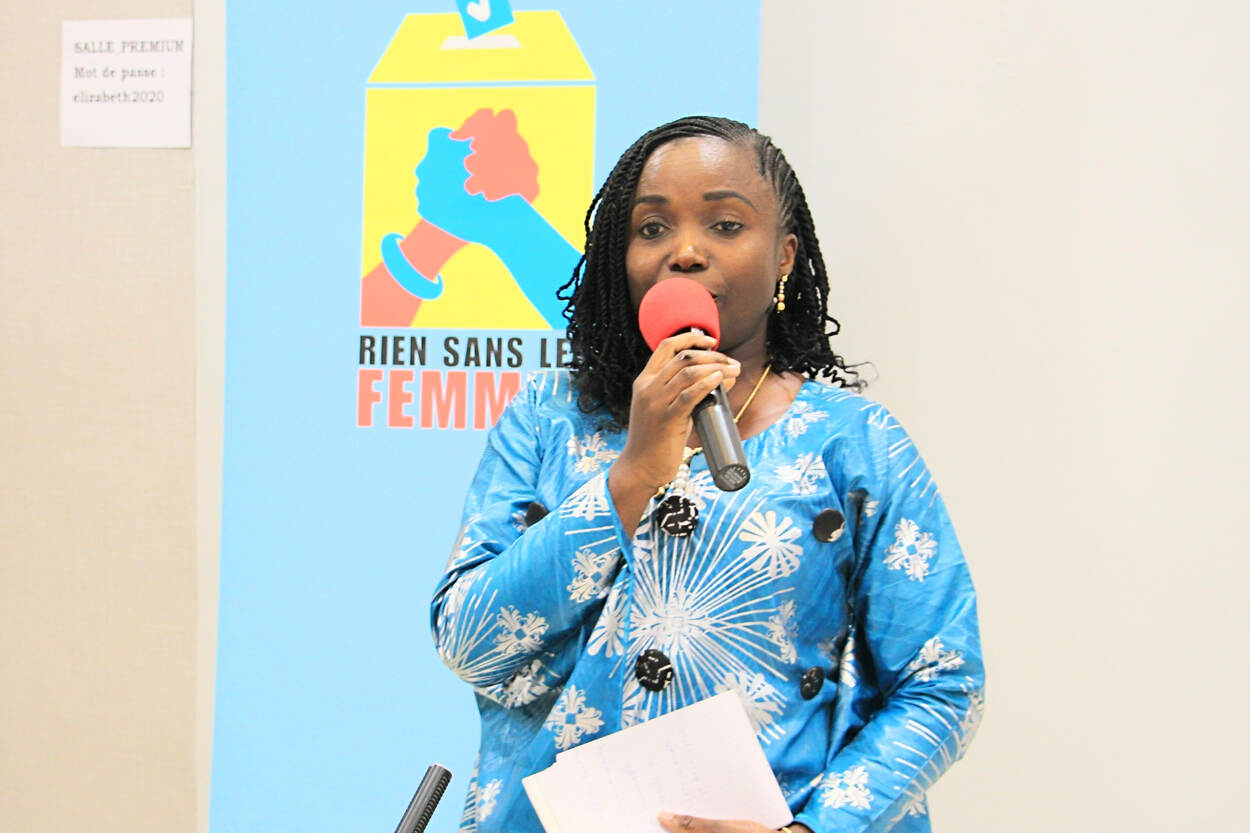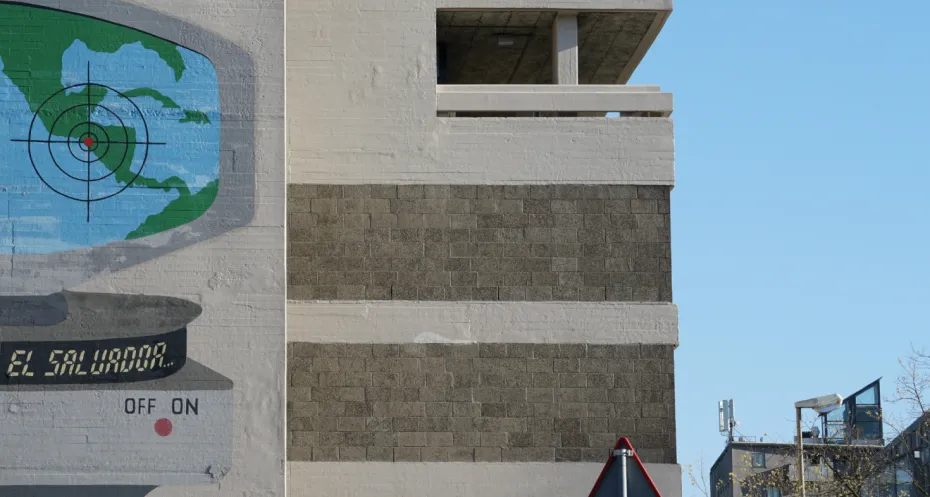
Radio is essential in Eastern-Congo provinces under State of Siege
As we speak a humanitarian crisis of great magnitude is happening in Eastern-Congo. A record of nearly 7 million people are displaced in the country, and everyday innocent people are killed, of which many children, and thousands of women and girls endure sexual violence. For the last three decades Eastern-Congo has struggled with complicated internal conflicts, and the world seems to have a hard time understanding it.
For this, reliable reporting is vital. Unfortunately, media struggle to do their work. It is extremely dangerous to report on the different conflicts because of the constant fighting between numerous parties, and the lack of humanitarian aid leaving the people deprived of their basic needs like water and food, not to mention access to the internet to record, transfer, and receive information. Besides this, reporting objectively is very difficult, and being critical of any of the fighting parties can make you a target.
But people need to know what is happening, and still there are journalists who stay and take the risks for the sake of bringing the truth out there. Even though the world hardly listens, or comes into action. But if it is not for the world, it is for the people who are on the run and need to know where it is safe(r) to go, where there is access to food or water, and where IDP (Internally Displaced People) camps are. For them access to information can be a matter of life and death.
Gender based violence

Women and girls are extra vulnerable in this conflict as they are subject to sexual violence by the armed groups. Julienne Baseke, Congolese journalist and human rights activist, and one of the top 3 ‘Mensenrechtentulp’ 2023 candidates, has made it her life’s work to advocate for women’s rights and the inclusion of women in DRC’s society. She has founded the organisation ‘Association of Women in the Media’ (AFEM), a platform for the inclusion of women journalists. Out of this initiative, the local media station for women ‘Mama Radio’ has been founded
Julienne Baseke: “Mama Radio allows women and communities to be better informed about sexual violence and serves as a protection mechanism, for example by alerting women on the danger of sexual violence and by pointing out the activities of armed groups.”
She continues: “We use a ‘mobile radio approach’ which means we bring the information to the people. We organise public broadcasts in villages about societal topics, and sexual violence specifically.”
Consequences of Stage of Siege
A specific aspect that causes issues for the independent media that are still operating in the conflict area, is the fact that since May 2021 the provinces Ituri and North Kivu have been placed under a ‘State of Siege’. This means the replacement of civilian government by military rule and the suspension of civilian legal processes for military powers. State protection of any civil rights, especially press freedom and freedom of expression are threatened. Journalists can work, but they are firmly requested to align with the FARDC (the Armed Forces of the Democratic Republic of the Congo) and join the official statements of the Congolese government. In one of the orders of the Head of State, it is clearly stated that the media are called upon to support the army in its action against so called terrorist groups. They should not undermine the army and “bring down morale”. It is nearly impossible to gain access to information from the army, or ask any critical questions.
Right to information
Within such a fragile and politically volatile context, the media, alongside civil society organisations, are indispensable to achieve a turning point. Therefore, Free Press Unlimited together with local partners is running a project to guarantee that the Congolese population in Northeastern Congo get access to trustworthy and relevant information offered by independent media outlets during the State of Siege, and to establish that journalists can do their work without fear and intimidation. The project focuses on several aspects: debunking fake news, monitoring press freedom violations and maintaining access to reliable information under a State of Siege.
Leon van den Boogerd, Programme Coordinator Sub-Sahara Africa at Free Press Unlimited: “In a fragile context such as in Eastern Congo, where there is no rule of law, where there is a non-functioning of institutions, and a lack of social cohesion, there is a greater need than ever for the media to be able to do its work freely. With 7 million displaced people who are trying to find safety everyday, it is very important that the population has access to reliable information. It is their right, despite the military rule. And that is what our project focuses on.”
Because radio is still the most important medium in rural areas specifically but in cities as well, the project focuses strongly on community radio in North Kivu and Ituri, especially those stations that are located close or even in red zones where armed groups are active.
Actions
With our partners we organise several awareness sessions with the authorities, the media and other human rights civil society organisations in place to help sensitise the military rule for the importance of independent media and access to information. With Journalistes en Danger (JED) we closely monitor the violations of press freedom and attacks on journalists in Ituri and North Kivu, and provide emergency response and legal support for journalists who face threats, prosecution or imprisonment, and who are unable to afford a lawyer or trial costs.
In this volatile situation with little access to reliable information, rumours and disinformation circulate widely. To calm down spirits, fake news spread by traditional media but also and especially via social media is identified and debunked.
Elections
With the first 5-year mandate of president Tshisekedi coming to an end, presidential elections are held on 20 December 2023. Without any doubts, this will create a lot of turbulence in an already very explosive sociopolitical context. In this past election year there have been 88 press freedom violations registered from which 24 in North Kivu and 10 in the Ituri province. To bring the electoral process forward in an appropriate way, it's important that the audiences are well informed about where and how to vote, who the candidates are and what is at stake. Democracy in the DRC is still a very young phenomenon, so voter education is very important. In our project we support twenty six local radio stations spread all over the two provinces.
Independent media in all of Congo but especially the Northeastern part are taking risks and doing what they can everyday in the most difficult and dangerous circumstances to bring reliable information. They deserve our attention and support.



